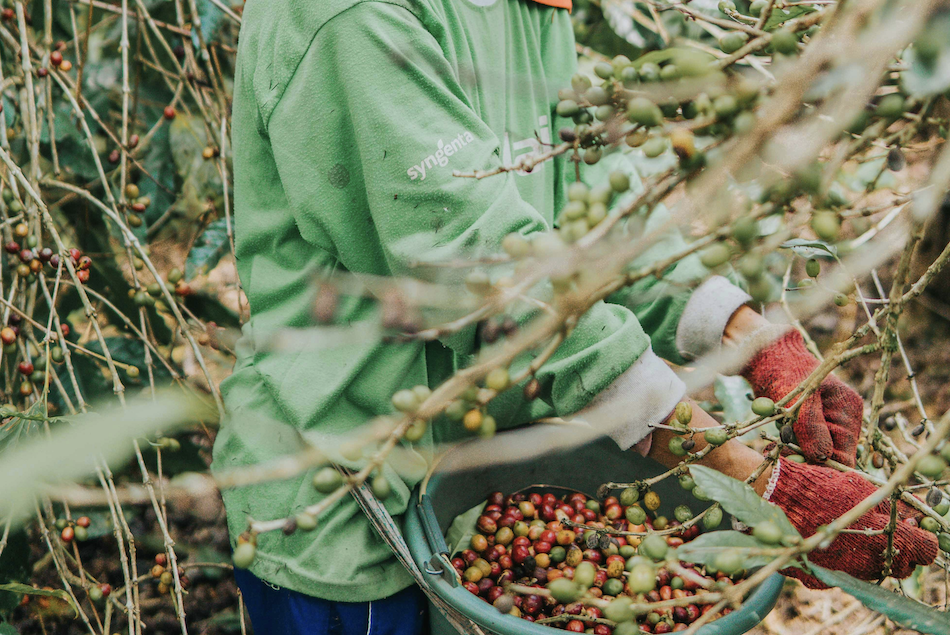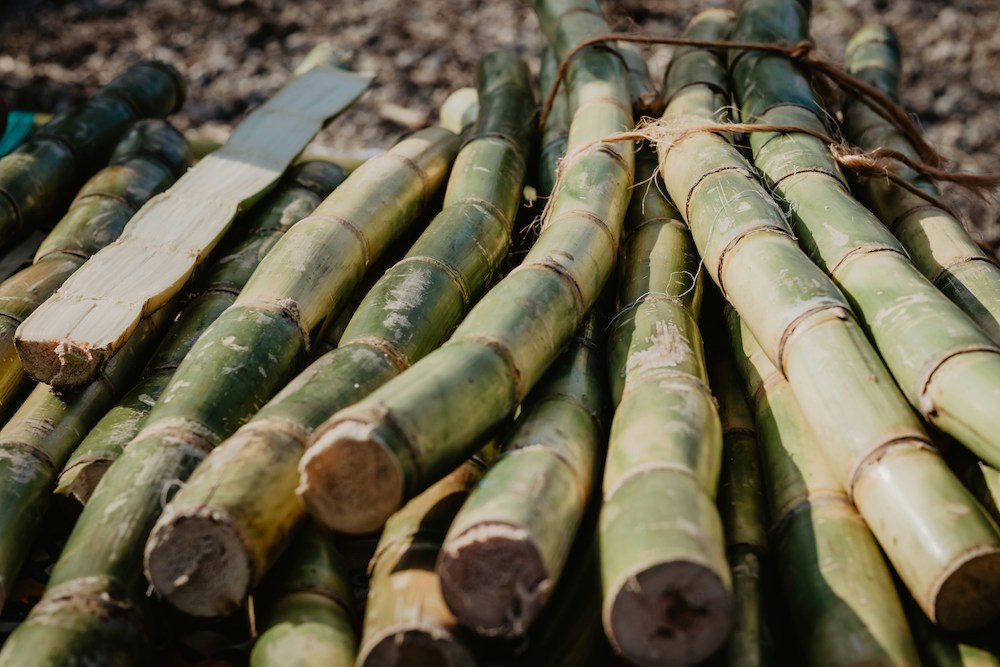The specialization of our software is what makes it the foremost CTRM solution for agricultural commodities in general, and for four of the biggest soft commodities specifically; Sugar, Coffee, Cocoa and Grains. One important variable these four categories have in common is their complexity. In terms of production, processing, transport and application, but also in product properties, pricing and certification. We’d like to take you along for the latter, by explaining what the ‘extra hurdles’ for these commodities are, and how Agiblocks is equipped to handle that aspect too.
CTRM solutions need to handle the general complexities of any particular commodity, along with providing features such as usability, performance and integration. However, agricultural commodities have quite a number of very specific aspects to it that not every CTRM solution will be able to handle with ease, or even at all. We will walk you through just a few of them here, as Agiboo has made it its mission to handle all of them – with Agiblocks.
Dynamics of regulations
Now, the regulatory landscape is pretty much as dynamic as all other aspects of the commodity trade industry. Which is to say, it’s ever-changing. You might have a handle on specific requirements that have been around for years or even decades, but there are always new variables around the corner. For instance, from 2025 onwards, there will be several new laws for trade – ESG, CSRD, EUDR. It’s all about social-economic sustainability and responsibility and the proper documentation of each at every step of the way so that CFO’s and CEO’s can be accountable for it in their annual accounts and financial statements. The software you use for your daily workflow should reflect that reality.
Secondly, there is quite a big variation in standards, certifications and requirements already. In the coffee and cocoa trade, quality-control and sustainability of production is reflected in UTZ certifications. Sugar has a comparable set of agreements, such as the Fairtrade Standard for Cane Sugar, which covers the requirements which are specific to sugar cane producers and traders; everything from core requirement that reflect Fairtrade principles, and best practices that refer to any and all additional steps that supply chain actors can – and in some cases must – take to foster fairer trading conditions.
Different for each commodity
For grain or soy beans, the situation is different. We refer here to the ‘GMO factor’. Which is just as dynamic, by the way – as there is an increasing amount of GMO technologies.
A GMO, or genetically modified organism, is a plant, animal, microorganism or other organism whose genetic makeup has been modified in a laboratory using genetic engineering or transgenic technology. We’re not saying that UTZ certification has anything to do with GMO, but on a practical level the GMO factor in grains is something that sets it apart from most other commodities, so it does need to be addressed here.
For instance, agricultural commodities produced in North America by means of GMO technologies can’t be imported into EU countries just as easily as product from the Black Sea-region can. In other words, this creates another distinctive factor that sets commodities apart from one another – even within the world of agricultural or ‘soft’ commodities.
Let’s look at some of the implications of certifications.

Coffee & Cocoa
In the cocoa and coffee chains, increasing attention is being paid to sustainability. This is reflected, among other things, in the sustainability of the production conditions for the farmers. UTZ is a certification program for sustainable farming of, among others, coffee, tea and cocoa. UTZ certification shows consumers that products have been sourced, from farm to shop shelf, in a sustainable manner.
To become certified, all UTZ suppliers have to follow our Code of Conduct, which offers expert guidance on better farming methods, working conditions and care for nature. This in turn leads to better production, a better environment and a better life for everyone.
Say you are in the business of selling cocoa to chocolate producers, or coffee to local vendors, and you have just sold a shipment of UTZ certified beans. Your buyer wishes to receive that shipment as soon as possible, but transport from Ghana is still several weeks out. Meanwhile, your storage facility has the right volume in stock, but that particular batch comes from elsewhere and has no UTZ certification. The system allows you to exchange certification within your own product balance, provided you don’t sell more uncertified stock than you buy. Agiblocks has the tools to set up that exchange in your CTRM software.
Sugar
As mentioned, Fairtrade applies to sugar and sugar cane too. It applies to any entity that has been certified under the Fairtrade Standard for Small Producer Organizations and deals with, among other things, the volume of produce by certified producers that can be sold under Fairtrade conditions. Coffee, cocoa and sugar are ‘on the list’, but so are cotton and other textiles, nuts and edible oils, herbs and spices – and many more.
Certification ensures that you comply with Fairtrade standards;
- responsible business practices and long-term, reliable trading relationships;
- fairer prices and better working conditions for farmers and workers;
- no child, forced or exploited labor;
- sustainable food production and environmental protection;
- gender equity; and
- freedom of association for workers.
Changes to Fairtrade Standards may change the requirements of Fairtrade certification – you are required to check the compliance criteria and certification policies on the website of the certification body – www.flocert.net.
In addition, there are a number of different standards in the sugar market. The International Commission for Uniform Methods of Sugar Analysis is the provider of the ICUMSA standards and an ICUMSA rating is an international unit for expressing the purity of the sugar in solution, and is directly related to the color of the sugar. For instance, there is Sugar (ICUMSA 100), White Refined Sugar (ICUMSA 45), White Crystal Sugar (ICUMSA 150), and VHP Sugar (ICUMSA 600-1200). Different regulations apply to different standards.
You can imagine a CTRM solution needs to be continually maintained and upgraded in line with changing market needs across all segments of the industry. For example, new ICE containerized sugar futures will need to be properly handled. Additionally, EU quotas, export limits and guaranteed prices will almost certainly result in some market dynamic changes that could have an impact on future requirements too.

Dealing with complexity
Note that these are just a few of the specific issues around soft commodity trading that are often either not supported in a generic CTRM solution, or may require some form of work-around to handle. And those work-arounds don’t come easily. Adding a small area of specificity for a commodity has huge ripple effects across the entire solution that also need to be considered. As a result, anyone looking to procure CTRM software for soft commodities should ensure that the short-listed solutions are able to handle such specifics along with all of the other expected functions and features of a good and usable product. This actually narrows the field of potential solutions quite considerably.
Agiblocks offers:
- Multiple entities & intercompany trade, multiple trade books
- Physical contract management for bulk, break bulk, containers, parcels
- Flexible position management (origins, specifications, premiums, certifications)
- Mark to Market valuation by position/parities/premiums and cost
- Hedging & derivative management (futures, options, OTC, forex)
- Cross markets (futures/forex) and/or ratio pricing, hedging, hedge allocation
- Logistic management (documentation & freight), physical inventories, sampling
- Financing & collaterals, invoicing, cost accruals, profit & loss: unrealized / realized
- Flexible reporting, document management, quality and trading dashboards
- General Accounting API, IFRS 15 & IFRS 9 compliant
Experience Agiblocks and judge for yourself
Experience our CTRM software solution for free and get a front-row seat to all the benefits Agiblocks has to offer with our free demo. The full range of Agiblocks functionality is available within the demo environment for your browsing leisure.
Familiarize yourself with the tools and features of our powerful, agile software solution and find out how you can make the daily practices of commodity trade and risk management more efficient. Fill out the form at agiboo.com/demo and we’ll get back to you!

